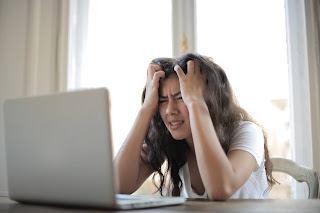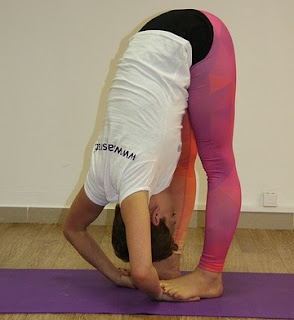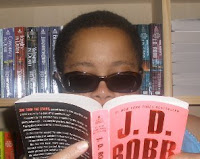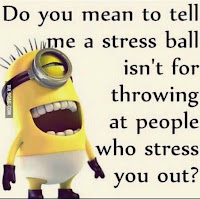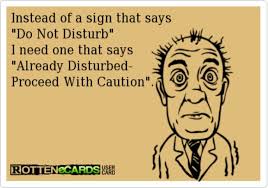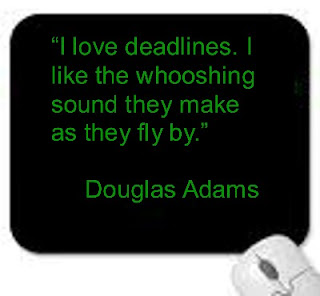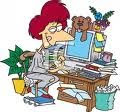Writing Through The Dark… Or Not
Writing Through The Dark… Or Not
One of the mantras you hear a lot if you’re an author is you
can’t wait around waiting for that drunken hussy of a writing muse to show up
for work. Instead, it’s BICHOK. You have to put Butt In Chair, Hands On
Keyboard.
There are, of course, dozens of reasons this is true.
Writing is, after all, a craft. Part of improving is doing. Practicing.
Challenging yourself in new ways. Putting the words on that page.
So why are so many of us staring at a blinking cursor, if we
even heave our protesting butts into the chair? Why are we cursing at that
cursor?
I considered this last night during my 3 AM round of
insomnia.
Sleep deprivation is an easy target. Lack of sleep has
been linked to poor cognitive performance. This includes a laundry list of
negative attributes including poor focus and concentration, low creativity,
erratic behavior, inability to multitask, and increased mistakes. While there is
a clamor about “creative insomnia” these days, the sad truth is we need sleep—and
that’s before we explore the myriad ways sleep deprivation messes with the rest
of our bodies.
What if you’re getting enough sleep? Or you’re trying to get
enough sleep? Maybe you have to look a little deeper. Maybe it’s time to
acknowledge the stressors underlying that lack of sleep.
Stress.
Interestingly enough, a number of the articles I read about
creativity and stress actually focused on the role of a creative outlet in
reducing stress. But as I explored this topic, the preferred “creative outlets”
stressed repetitive motions: walking, gardening, talking with friends,
activities that are too often curtailed these days by COVID-19-induced
isolation and bitter winter cold.
Isolation. Cold. COVID-19. Darkness. Now those are some major
stressors.
As I read more, I found useful discussions about psychological
safety that doesn’t create crippling performance pressure. Basically, you need
to let go of forcing yourself to “be creative.” If you’re already stressed, those
threats simply trigger more fight or flights reactions—the most primitive,
least creative part of your brain. Instead of demanding creativity, relax. Tell
yourself, what if…
Let’s play around with this idea…
Of course, these articles also advocated, you guessed it, stress
reducing activities like walking, gardening, and talking with friends. Or “going
to your happy place” such as a favorite coffee shop or roaming a museum or art gallery.
Yeah, I’m looking forward to those creative inciting activities
too.
In the meanwhile, the helpful ideas include:
1) Meditate. Calm your mind.
2) Walk. Get outside if possible. Let your mind relax.
3) Read. Turns out it’s a stress buster.
4) De-clutter. Research says decluttering your workspace can
also clear your head.
5) Live life. Winter and COVID will end. Go enjoy every
minute.
An award-winning author of financial mysteries, Cathy Perkins writes twisting dark suspense and light amateur sleuth stories. When not writing, she battles with the beavers over the pond height or heads out on another travel adventure. She lives in Washington with her husband, children, several dogs and the resident deer herd. Visit her at http://cperkinswrites.com or on Facebook
She’s hard at work on Peril in the Pony Ring, the sequel to The Body in the Beaver Pond, which was recently presented with the Killer Nashville’s Claymore Award.

